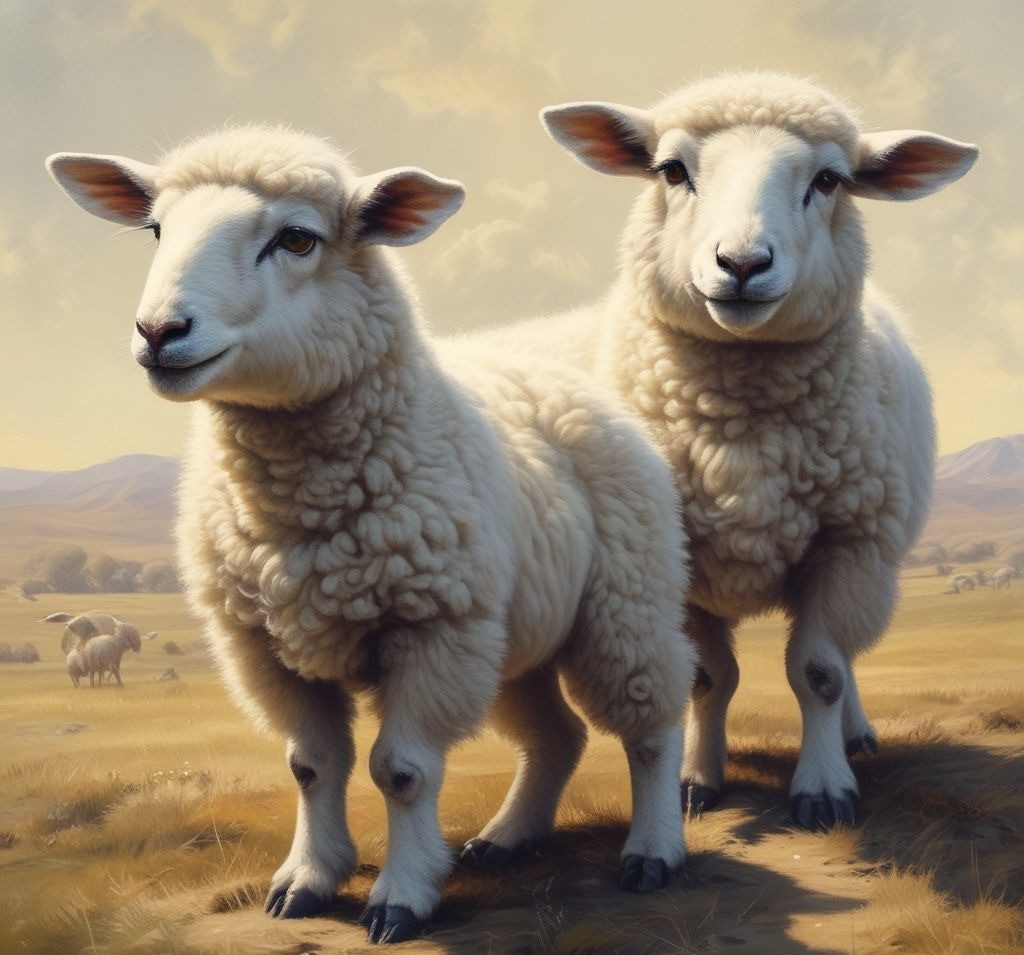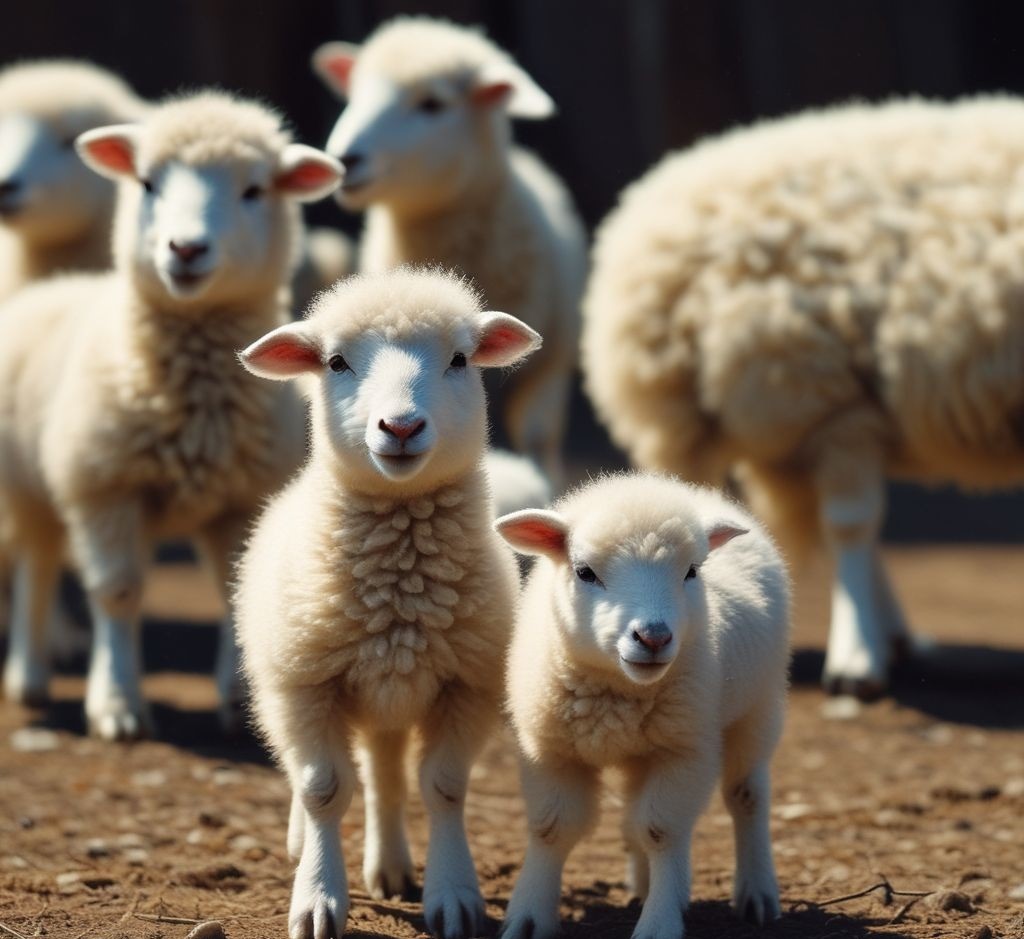🐑 All About the Babydoll Sheep
The tiny, fluffy sheep with the cutest smile! 😊🌸🌾
📖 Quick Overview
| Feature | Details |
|---|---|
| Animal Name | Babydoll Southdown Sheep (often called “Babydoll Sheep”) |
| Habitat | Farms and pastures (originally from England, now worldwide) |
| Food | Grass, hay, and grains (Herbivore) |
| Group Name | Flock |
| Baby Name | Lamb |
| Special Skill | Super friendly and great at mowing lawns! |
| Danger Level | Not endangered 🟢 |

🌟 What Is a Babydoll Sheep?
Babydoll Sheep are miniature sheep known for their sweet teddy bear faces and gentle nature!
They have:
- Wooly round faces that look like they’re smiling 😊
- Short legs and compact, fluffy bodies
- Super soft wool perfect for spinning
- Calm and kind personalities—great for pets and therapy animals!
They are a type of Southdown sheep, a breed that started in England over 200 years ago.
📍 Where Do Babydoll Sheep Live?
Babydoll sheep live on farms and hobby homesteads all over the world.
🗺️ Common in:
- The United States 🇺🇸
- Canada 🍁
- Australia 🇦🇺
- Europe 🌍
They love grassy fields, shady spots, and cozy barns.
🍽️ What Do Babydoll Sheep Eat?
They are herbivores, meaning they only eat plants!
🍴 Favorite foods include:
- Grass and clover
- Hay (especially in winter)
- Sheep-safe grains or pellets
- Fresh water and occasional treats like apples!
They’re known as “living lawnmowers” because they keep pastures trimmed.
👨👩👧👦 Family and Groups
Sheep live in groups called flocks—and babydolls love to stay close together.
👶 Baby Babydoll = Lamb
Lambs are born in spring, and they’re extra fluffy and playful!
Moms (ewes) and babies bond quickly and stay close for weeks.
💪 Brilliant Babydoll Powers
- Wool grows year-round—soft and prized by spinners
- Very calm and gentle, even around children
- Can live up to 12–16 years with good care
- Naturally small and hardy, needing less food than bigger breeds
- Excellent at calming people—used in therapy!
💡 Fun Facts About Babydoll Sheep
- They’re only 18–24 inches tall at the shoulder!
- People call them “teddy bear sheep” 🧸
- Their wool is fine and springy, great for soft yarn
- They rarely jump fences—great for small farms
- Babydolls often smile thanks to their cute face shape
🛑 Are Babydoll Sheep in Danger?
Nope! 🟢
They’re a popular breed for small farms, therapy animals, and wool production.
But they still need:
- Proper care
- Shelter from bad weather
- Safe pastures and gentle handling
💚 How Can We Help?
- Support local wool farms and ethical animal care
- Learn about sheep and help protect farming traditions
- Visit petting zoos and farms that treat animals kindly
- Share fun facts about these adorable sheep!
✏️ Activity: Make a Fluffy Sheep Craft!
🎨 Use cotton balls, paper, and glue to:
- Make your own tiny babydoll sheep
- Add a smiling face and short legs
- Give your sheep a name and draw its farm!

✅ Summary
| 🗂️ Category | 🐑 Babydoll Sheep |
|---|---|
| Type | Mammal (Sheep – Miniature Southdown breed) |
| Diet | Herbivore (grass, hay, grains) |
| Habitat | Farms and pastures |
| Group | Flock |
| Special Skill | Super sweet and naturally smiley—great for small farms |
| Danger Level | Not endangered 🟢 |